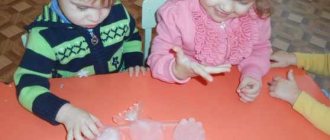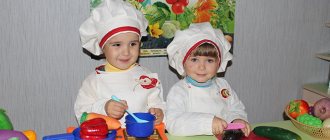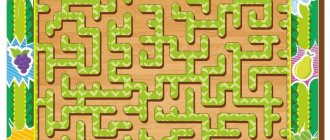The benefits of outdoor games
Such games are especially useful for children of preschool and primary school age.
This is the time when it is important to monitor the physical condition of the child and develop it. Physical activity stimulates muscle function, increases blood circulation and breathing, improves metabolism, which contributes to the health of the entire body.
Outdoor games teach children to control their body and help them master its new capabilities and improve their motor skills.
Also in group games, the child develops the following skills:
- ability to interact with other children,
- ability to work in a team, help others,
- organization and discipline,
- agility and endurance,
- courage and perseverance.
Outdoor games are also an excellent way to control energy. For example, if your child often becomes aggressive, such games will help him relieve stress and keep himself under control.
In addition, they have a good effect on the nervous system, helping to improve sleep quality and increase appetite. This is also a good way to cheer up.
Examples of fun games
“Catch the ball” (for preschoolers - children of primary school age)
Children receive one or more balloons (depending on the number of participants). The guys' task is to prevent the balls from touching the floor, constantly forcing them to fly up.
“The slower you go, the further you go” (for any age)
Two lines are drawn - start and finish (the distance between them is about 30 m). The leader stands at the finish line, the rest at the start. The presenter turns away and says the words:
"The quieter you go, the further you'll get".
While the leader speaks, the rest try to run as far as possible. The presenter, having finished speaking, turns sharply.
At this moment everyone should freeze. The player who does not have time to stop is sent back to the start. The players' task is to get to the finish line as quickly as possible.
"Jumping in bags" (for any age)
The guys are divided into 2 or more teams. Each team has a bag.
Children take turns jumping in bags to the set mark and returning back.
All team members must complete this task. The team's goal is to finish faster than their opponents.
The fastest team wins.
Outdoor games are an excellent way to develop skills in a child. While children are having fun and having fun, physical activity has a positive effect on their health, increases endurance and agility, and teaches children how to work as a team. Thus, the child develops while doing what interests him.
Plotless Russian folk games for preschoolers
Article “Plotless Russian folk games”
Author: Guryanova Ekaterina Petrovna, teacher Municipal budgetary preschool educational organization “Kindergarten of a combined type No. 11 “Shatlyk” of the Menzelinsky municipal district of the Republic of Tatarstan Purpose of the material: this material is intended for kindergarten teachers. The presented material will be useful for kindergarten teachers. Goal: to disseminate pedagogical experience among kindergarten teachers. Objective: to reveal the significance of plotless Russian folk games for preschool children. Plotless Russian folk games are similar to plot-based folk outdoor games: • Presence of circumstances • Main performer • Coordinated actions of players The difference between plotless games and plot-based folk outdoor games is the lack of figures that children imitate. Plotless games involve simple movements. These games are understandable to younger preschoolers and older preschoolers. When conducting plotless games, you should pay attention that these games require children to be proactive, dispassionate, and able to navigate in space. This is due to the fact that gaming actions are associated with the performance of a specific motor task. When completing this task, you must follow the rules. Plotless games vary in the quality of their organization: • Group (“Traps”, “Dashes”) • For small groups of players with objects: “Hoops”, “Serso”. • Games – relay races – players are divided into units and teams. These games are understandable to children. Games with elements of competition, individual or group, are becoming available to preschool children, for example, “Pass the ball”, “Who is the fastest to the flag”. Elements of competition encourage children to be more active, demonstrating such qualities as dexterity, courage, and speed. Some games of this type are played without division into teams or units. In this case, the child strives to complete the task as best as possible, as quickly as possible. These games are intended for children 4 years old. A variety of games can be played by dividing children into teams, then simple relay games are held. Such games are understandable to children of senior preschool age 5-6 years old. The games using the presented items differ, for example: “Skittles”, “Serso”, “Lapta”. Such games allow you to perform more complex movements: rolling balls, balls, pins, throwing. Each participant performs a certain action of the game regardless of the remaining participants in the game, but the results obtained are an incentive for more accurate execution of the task. These games promote elements of individual competition, for example, to knock down all the pins faster than a friend.
We recommend watching:
Mathematical game with Cuisenaire sticks for children 5-6 years old Game guide on fire safety for kindergarten. Senior group Speech development for preschoolers 5-6 years old through play activities Folk game of the Nikolsky district for children “Deer”
Similar articles:
Game "Cabbage" for older children
Spring games for older children in kindergarten
Games for the development of fine motor skills for children 5-6 years old in kindergarten
Games for the development of logical thinking for children 5-6 years old in kindergarten
Literacy games for children 5-6 years old in kindergarten
Examples of plotless games
“Sun-Rain” (For preschoolers)
For this game it is necessary to determine what will be the “house”. They can be chairs, hoops on the ground and other objects located on the site. The presenter says the phrase:
“Sunny, it’s time to go for a walk.” After this, the children run freely around the territory until the leader says: “It’s raining, it’s time to go home.”
At this command, the guys run to the “houses”. You can reduce the number of “houses” with each move to introduce a competitive element into the game.
Then the winner will be the one who reaches the very end.
“Tea, tea - help out!” (for preschoolers – middle-aged children)
The game is played in a limited area. One or more drivers are selected. On command, the children run away. The driver's task is to harass those running away. Those who have been exposed must stand still and shout:
- Tea, tea - help out!
Drivers can guard the harassed player, but should not stand right next to him or hold his hand. To save a participant, simple tasks are suitable: crawl between the legs (if the game is played indoors) or simply touch with your hand.
Any free player can “help out” the victim. The task of the presenters is to catch all the players, the rest - to remain undetected for as long as possible.
“Ring Throwers” (for preschoolers of older groups - middle-aged children)
Several pegs (3–7) are placed at a distance from children (depending on age, you can choose a distance of 1–2.5 m).
Participants take turns throwing rings, the number of which may be 1–2 more than the number of pegs.
The number of hits of each child is counted, and the winner is the most accurate player.





